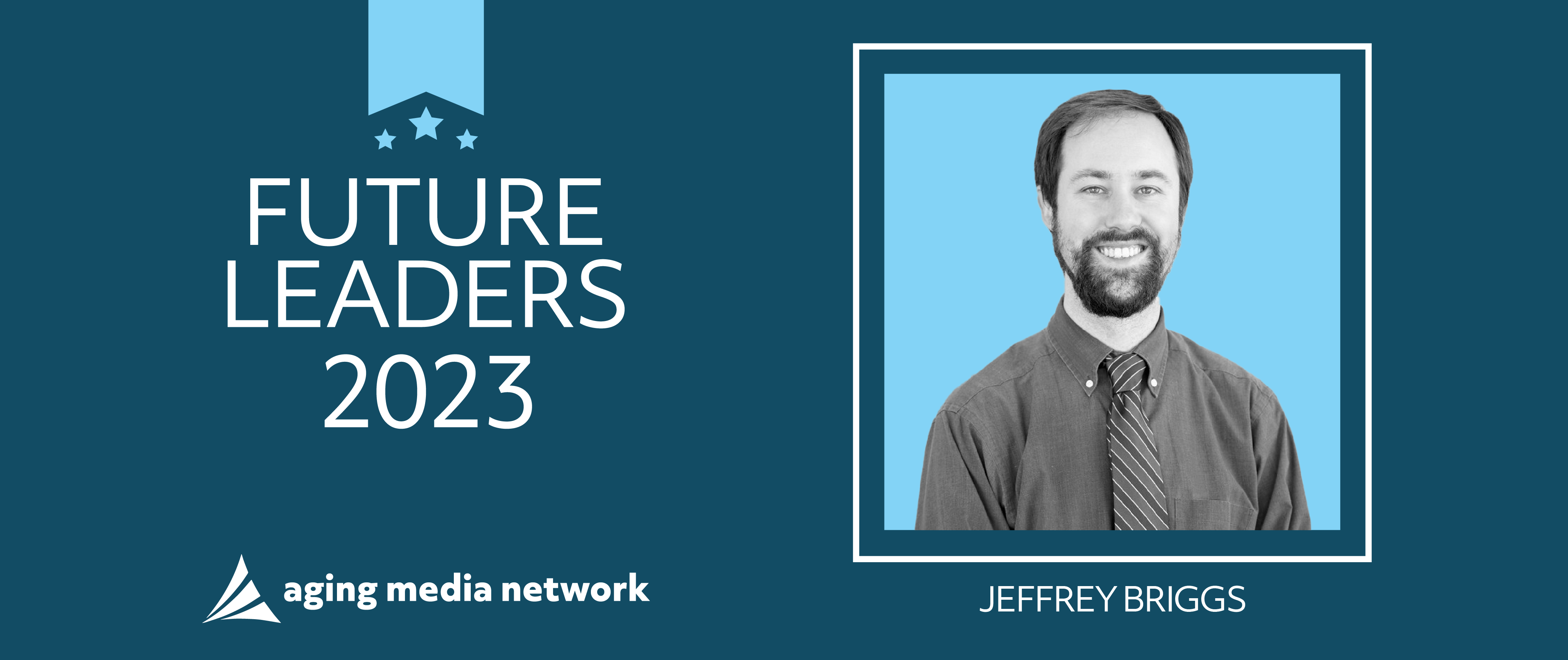The Future Leaders Awards program is brought to you in partnership with Homecare Homebase. The program is designed to recognize up-and-coming industry members who are shaping the next decade of home health, hospice care, senior housing, skilled nursing, and behavioral health. To see this year’s Future Leaders, visit https://futureleaders.agingmedia.com/.
Jeffrey Briggs, the director of intake at the Maryland-based Family & Nursing Care, has been named a 2023 Future Leader by Home Health Care News.
To become a Future Leader, an individual is nominated by their peers. The candidate must be a high-performing employee who is 40-years-old or younger, a passionate worker who knows how to put vision into action, and an advocate for seniors, and the committed professionals who ensure their well-being.
Briggs sat down with HHCN to talk about: how summer camp led him to home care, the importance of empathy while working in the space and ways to make care more affordable for those who need it.
HHCN: What drew you to this industry?
My wife also works for the same home care agency — Family & Nursing Care. Before I started working for the agency, I was working in education, as a teacher, and just looking for a change. There was an opening and I applied.
One connection with my past experiences was that in college, for a few summers, I worked at a camp for kids with chronic illnesses and diseases. A lot of the role as a counselor was providing personal care — helping them with bathing, dressing, toileting and things of that nature. I really made that connection with what our home care agency does, what our caregivers do every day but with a different population, the geriatric population.
What’s your biggest lesson learned since starting to work in this industry?
I think the biggest lesson I’ve learned is just how important compassion and empathy are.
Every day we’re dealing with and talking to families who really are in crisis situations, whether it’s a family member coming home from the hospital, or trying to support a loved one who has dementia. People are really calling us with difficult situations, and it’s so important to try to understand their unique needs.
If you could change one thing with an eye toward the future of home care, what would it be?
Over the past few years, I feel like especially through COVID, agencies have had to raise their wage rates in order to pay their caregivers more, which I think is so important. Caregivers are out there providing the care to our clients. They are doing a thankless job — in many cases, hard work and long hours. It’s important that they get paid a fair wage, and they deserve every penny they make.
What that means, though, is that our rates go up, so that we can pay our caregivers more. There are some people who can continue to afford our services, but there are many people that struggle. One thing I would want to change is just looking at ways to make home care more affordable for more people, whether that’s through Medicare, covering home care expenses, or people being able to tap into their HSA accounts.
What do you foresee as being different about the home care industry looking ahead to 2024 and beyond?
As more people are wanting to age in place and stay in their home, there is a need for more collaboration from different stakeholders in the health care and home-based care field — home health, home care and hospice agencies.
We’re a part of a program where we’re partnering with home health agencies. Instead of people going to rehab in this program, they’re going home, with support from physical therapists and occupational therapists, and then also our agency is providing the certified nursing assistants.
In a word, how would you describe the future of home care?
Evolving.
What quality must all future leaders possess?
Empathy — it’s so important to be able to put ourselves in other shoes.
To learn more about the Future Leaders program, visit https://futureleaders.agingmedia.com/.



